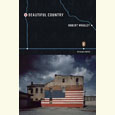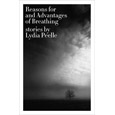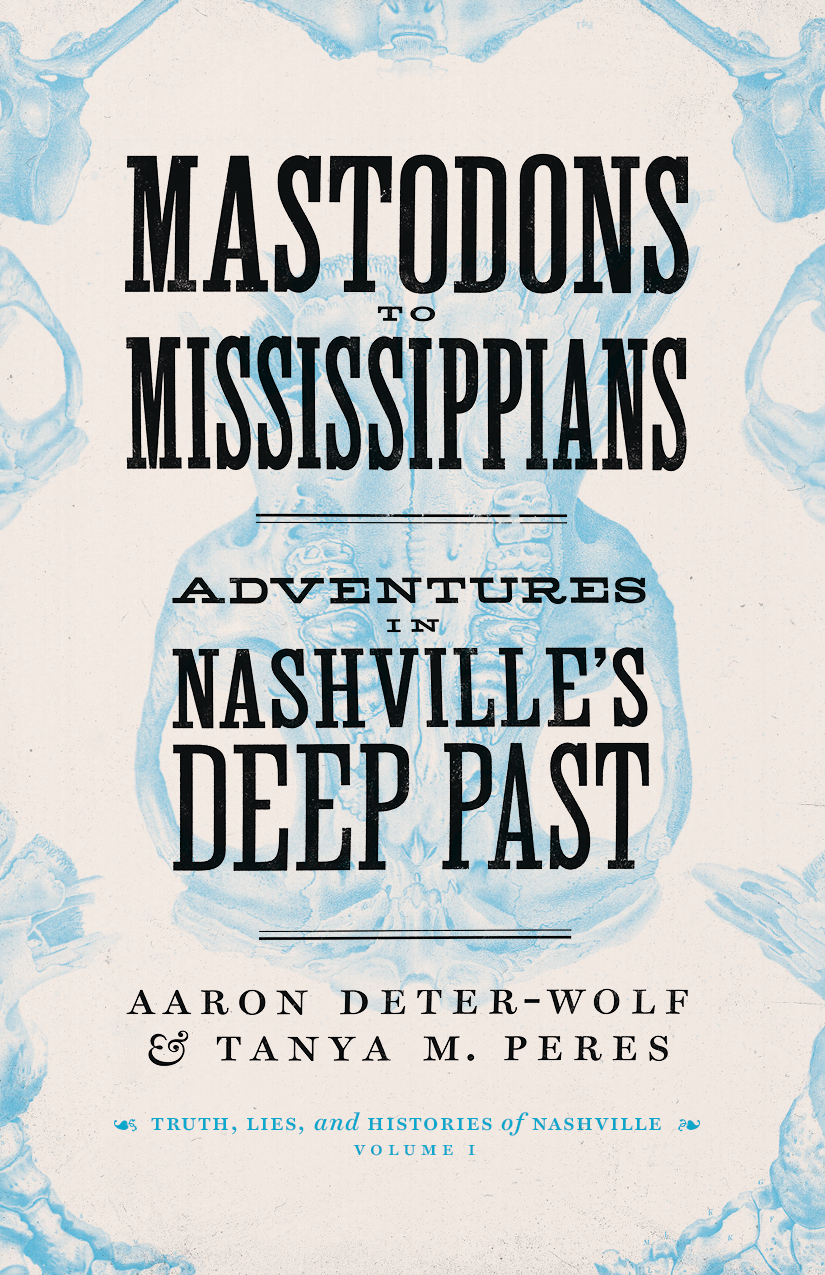What a Poem Leaves Out
Marvin Bell talks with Chapter 16 about what makes poetry different from prose
Marvin Bell has written twenty-three books of poems and taught for more than forty years at The Iowa Writers’ Workshop, but he is hardly slowing down. In 2011 alone, he published a new book of poems (Vertigo: The Living Dead Man Poems), a children’s book (A Primer about the Flag), and a collaboration with the photographer Nathan Lyons (Whiteout). He also frequently performs his poems with musicians, including jazz bassist Glen Moore and his own son, the Tennessee-based singer/songwriter Nathan Bell. He and his wife Dorothy split their time between Iowa City and Port Townsend, Washington. Bell now teaches in the low-residency M.F.A. program at Pacific University in Oregon.
The son of an immigrant Ukrainian Jew, Bell was born in 1937 in New York City and grew up on Long Island. After three years as a student at the Iowa Writers’ Workshop, he served two years as an Army Lieutenant during the Vietnam War, returning to Iowa in 1965 as a faculty member. In 1966, he published his first book of poems, Things We Dreamt We Died For. Three years later, A Probable Volume of Dreams, his second book, won the prestigious Lamont Poetry Selection from the Academy of American Poets. Since then, Bell has been a finalist for the National Book Award and the Los Angeles Times Book Award, and has won awards from the American Academy of Arts and Letters, the National Endowment for the Arts, and countless others.
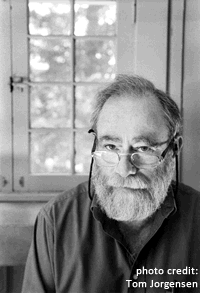 Bell’s ultimate legacy will likely be determined by the fate of his Dead Man poems, a sequence he began in 1986, though it took four years for him to write another. Since 1990, his poetic career has been defined by the Dead Man, a persona that Bell has called, among many other things, “the eraser of distinctions.” In an interview with The Drunken Boat a few years ago, Bell said, “Being a grownup means knowing that things end. But the Dead Man is alive and dead at the same time. He embodies the past and present, as does anyone, but he also embodies his future, from which he can look back. This is my way of trying to study the dark without turning on a light. He is dead because Everyman is a dead man in waiting. His pilgrim’s progress is entropy.”
Bell’s ultimate legacy will likely be determined by the fate of his Dead Man poems, a sequence he began in 1986, though it took four years for him to write another. Since 1990, his poetic career has been defined by the Dead Man, a persona that Bell has called, among many other things, “the eraser of distinctions.” In an interview with The Drunken Boat a few years ago, Bell said, “Being a grownup means knowing that things end. But the Dead Man is alive and dead at the same time. He embodies the past and present, as does anyone, but he also embodies his future, from which he can look back. This is my way of trying to study the dark without turning on a light. He is dead because Everyman is a dead man in waiting. His pilgrim’s progress is entropy.”
Prior to his reading at Middle Tennessee State University on February 20, Bell answered questions from Chapter 16 via email.
Chapter 16: One of your sons is a real-life ninja who worked as a bodyguard for the Dalai Lama. Your other son is a critically acclaimed musician. You’re a famous poet. What was in the water at the Bell house?
Marvin Bell: Genes and dumb luck? A daffy dad? We never pushed our sons to do this or that. I pretty much kept evidence of literary luck out of sight. No posters on the walls, none of my books prominently in view. I think they grew up with both a love of words and a love of silence. No credit to me, but a great deal to Dorothy, who Jason likes to say was born with the wisdom of a Zen master. Of course, odd and interesting people were always part of the scene. Well, we are serious about serious matters, but we are also quick to laugh at The Absurd and at ourselves. You should hear my sons make fun of poets! Nathan lives in Tennessee, writing sociopolitical love songs, and Jason lives in New York City, working with interactive media. They are both smarter than Dad.
Chapter 16: You taught for forty years at the Iowa Writers’ Workshop. Your former students are stunning examples of talent and achievement: Marilyn Chin, Rita Dove, Norman Dubie, Albert Goldbarth, Joy Harjo, Juan Felipe Herrera, Andrew Hudgins, Mark Jarman, Denis Johnson, David St. John, and James Tate, for starters. In a eulogy for one of your own teachers, the great poet Donald Justice, you wrote, “As a teacher, Don chose always to be on the side of the poem.” As a teacher, what did you mean by that? And again, about the water: what’s Iowa City putting in it?
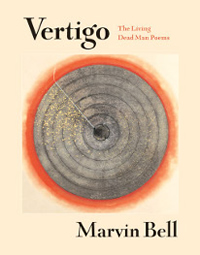 Bell: I can’t take credit for their talent. Apart from texts, my teaching is mostly subversive jiu-jitsu. I try to establish the widest possible aesthetic range and then get out of their way. And they learn from one another. For example, Dubie, St. John, Michael Burkard, and Larry Levis were all there together. To be on the side of the poem is to defend it against wrong-headed criticism. To spot and accept its own terms. I would like students to write with abandon, to learn the rules, break the rules, make up new rules, and break the new rules. To write neither like one another nor like the teacher. To avoid jargon and to remain independent. To be a poet every day, whatever else they have to be. To honor both inherent brilliance and the verbal acrobatics that produce new thought. To understand that genius in the arts consists of getting in touch with one’s own wiring, not with that of the teacher’s. That we are all in this together. That art is a survival skill and the big Yes. As for the Workshop “water,” there was an attitude, which included a disdain for theory. For many years, the Iowa Workshop drew outsiders, subversives, students who had arrived by circuitous routes. It’s different now.
Bell: I can’t take credit for their talent. Apart from texts, my teaching is mostly subversive jiu-jitsu. I try to establish the widest possible aesthetic range and then get out of their way. And they learn from one another. For example, Dubie, St. John, Michael Burkard, and Larry Levis were all there together. To be on the side of the poem is to defend it against wrong-headed criticism. To spot and accept its own terms. I would like students to write with abandon, to learn the rules, break the rules, make up new rules, and break the new rules. To write neither like one another nor like the teacher. To avoid jargon and to remain independent. To be a poet every day, whatever else they have to be. To honor both inherent brilliance and the verbal acrobatics that produce new thought. To understand that genius in the arts consists of getting in touch with one’s own wiring, not with that of the teacher’s. That we are all in this together. That art is a survival skill and the big Yes. As for the Workshop “water,” there was an attitude, which included a disdain for theory. For many years, the Iowa Workshop drew outsiders, subversives, students who had arrived by circuitous routes. It’s different now.
Chapter 16: In “This Is Just to Say,” one of your poetic forefathers, William Carlos Williams, apologizes, sort of, for eating some plums. “Forgive me,” the speaker says, “they were delicious / so sweet / and so cold.” Your own famous poem “To Dorothy” begins with a nod to Renaissance sonneteers, especially Shakespeare—“You are not beautiful exactly. / You are beautiful inexactly” —and ends, “If I lost you / I’d have to ask the grass to let me sleep.” In every logical way, your mostly earnest, always beautiful love poem is the opposite of Williams’s clever, possibly cold lines. Still, I’m not sure why, they remind me very much of each other. Can you help?
Bell: It’s an intriguing question. Maybe it’s because of what they don’t say. I think prose is prose because of what it includes, while poetry is poetry because of what it leaves out. It could be that each of those poems says just enough. In this regard, one might think of Wallace Stevens’s lines from his poem, “Of Modern Poetry”: “The poem of the mind in the act of finding / What will suffice.” By now, my little poem to Dorothy is all over the Internet, sometimes with someone else’s byline, sometimes as lines excerpted for another’s poem. I saw one beautiful site that was headlined with the poem’s first two lines. Then there was the chat room in which a woman was asking others where on her body to tattoo those lines because she planned to lose weight. The poem has been recited at weddings and funerals. A couple told me they recited it as they ran together mornings. I don’t mind at all how others have excerpted it, though I hope it also continues to exist in its correct version.
Chapter 16: Speaking of Williams, you have claimed the lineage of your Dead Man persona as Whitman, Williams, Ginsberg, Dead Man. Would you comment a little more on that point?
Bell: I come from a time and place of few books and little poetry. The Beats, and the little magazines of the fifties-sixties, which lived and died according to their editors’ enthusiasm and finances, revealed to me that poetry could be a new way of thinking and a language of original bearing. Whitman for range. Williams for idiom, for experiment and for ideas with dirt on their shoes. Ginsberg for the sense of now. I should say that the dead man of the dead man poems is alive and dead at the same time. He defeats time. He’s not me but knows a lot about me.
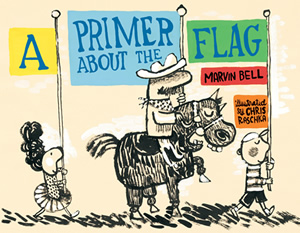 Chapter 16: Kirkus Reviews notes that your recent children’s book, A Primer about the Flag, has been called, variously, “ambiguous, befuddling, enigmatic, esoteric, striking, somber, surprising, peculiar, moody, lively, and triumphant.” But my favorite line from a review is this: “If you are looking for a real primer about flags, ignore this book. Not only is the title deceptive, but the contents are probably not what you were expecting in a book of this nature.” What is the true nature of this book? And what should the reader expect in a book of this nature?
Chapter 16: Kirkus Reviews notes that your recent children’s book, A Primer about the Flag, has been called, variously, “ambiguous, befuddling, enigmatic, esoteric, striking, somber, surprising, peculiar, moody, lively, and triumphant.” But my favorite line from a review is this: “If you are looking for a real primer about flags, ignore this book. Not only is the title deceptive, but the contents are probably not what you were expecting in a book of this nature.” What is the true nature of this book? And what should the reader expect in a book of this nature?
Bell: That’s a funny list, nearly longer than the poem. I think “surprising” and “lively” could be on the mark. The others, no. I suppose some of those reviewers wanted a dictionary definition of flags, or were put off by a poem in which there appear all sorts of flags, and they are only symbols.
By the way, I did nothing to deserve this lovely book. The writer Nancy Willard, decades ago, said to me in passing at the Bread Loaf Writers’ Conference, “You know, that poem of yours, “A Primer about the Flag,” would make a good children’s picture book. Later, Nancy made some artwork with which to suggest it to an editor, but the editor wasn’t interested. Decades went by until one day I received a handwritten note from Nancy saying that Candlewick Press wanted to do it. Nancy was too modest to provide the illustrations, so they used Chris Raschka. I am happy to say that the poem is not quite the usual children’s-book poem. The poem is child-like about a grownup topic, and contains a laugh or two and a disarming ending. Hard to imagine anyone could find it befuddling. Nice word, though, “befuddling.”
Chapter 16: You have said, “The human condition is heartbreaking. The world is sociopolitical, not literary. It’s only our reaction to the world that can be literary.” Since the Iraq War, your literary reactions to the sociopolitical world seem to have become more passionate. Mars Being Red, for example, is a plainly political book. Your publisher, Copper Canyon, calls it “an atypical book of personal poetry that delivers political goods.” You began writing poems during the Vietnam War and have lived and worked through decades of political and social mayhem, both here and around the world: assassinations, mass starvation, genocide, you name it. What is it about this particular time, the time of and after the Iraq War, that inspires you to a more direct literary engagement with the sociopolitical world?
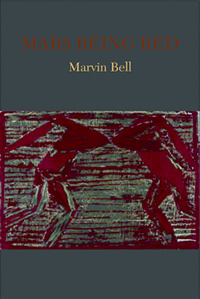 Bell: My generation has lived through several long, major wars. I was an Army officer 1964-65. After I was discharged, I took part in readings protesting the Vietnam War. The poets didn’t stop the war, but they were part of what would come to be a majority decision. That’s all most of us ever get to be, as far as national and international events go. I write sociopolitical poems only because I can’t help it. Mars Being Red is a wartime book. That is, war is the matrix, whatever else is at the forefront. It turns out that wartime is always the matrix. The first section title of one of the “dead man” poems is “About the Dead Man in Peacetime, If and When.” The “dead man” books are as full of the sociopolitical as they are of the philosophic.
Bell: My generation has lived through several long, major wars. I was an Army officer 1964-65. After I was discharged, I took part in readings protesting the Vietnam War. The poets didn’t stop the war, but they were part of what would come to be a majority decision. That’s all most of us ever get to be, as far as national and international events go. I write sociopolitical poems only because I can’t help it. Mars Being Red is a wartime book. That is, war is the matrix, whatever else is at the forefront. It turns out that wartime is always the matrix. The first section title of one of the “dead man” poems is “About the Dead Man in Peacetime, If and When.” The “dead man” books are as full of the sociopolitical as they are of the philosophic.
Chapter 16: And finally, speaking of poetry and decency, you have said, “Of course, every age has its glut of B-grade magazine verse, its playing fields of the inept, its links of duffers, its beginners, its amateurs, its dilettantes, its millions of decent people doing what they like the best they can. Shame on good poets who are nasty to lesser poets.” And you have also said, “I long ago discounted the so-called ‘self,’ which remains both the most common, and the least profound, poetic subject.” Could you say a few words about these comments and let us know how, if at all, they are related?
Bell: I can’t play ball as well as Derek Jeter can, but does that mean I don’t get to play, or that Joe Torre should be hired to point it out in print? Bill Stafford used to say that writing is a “natural human activity.” I do try to encourage student poets to write original poetry rather than, say, chopped prose about pedestrian matters, but that’s a different issue. If they still write chopped prose, I’ll show them how to chop it better. Everyone writes up to his or her abilities—verbal, emotional, intellectual and psychological. As for the self, without imagination it makes for an art that may glitter for a while, but eventually turns leaden.
Marvin Bell will read from his work on February 20 at 4:30 p.m. in the Tom Jackson Building on the campus of Middle Tennessee State University in Murfreesboro. The event is free and open

